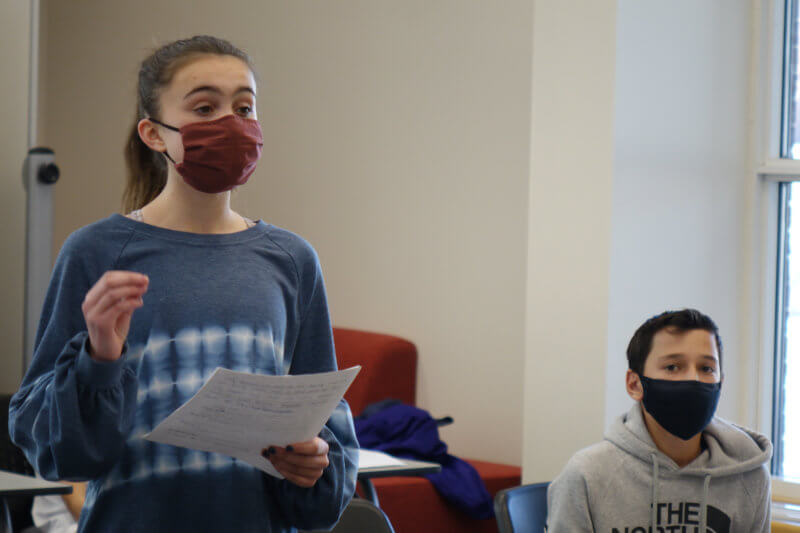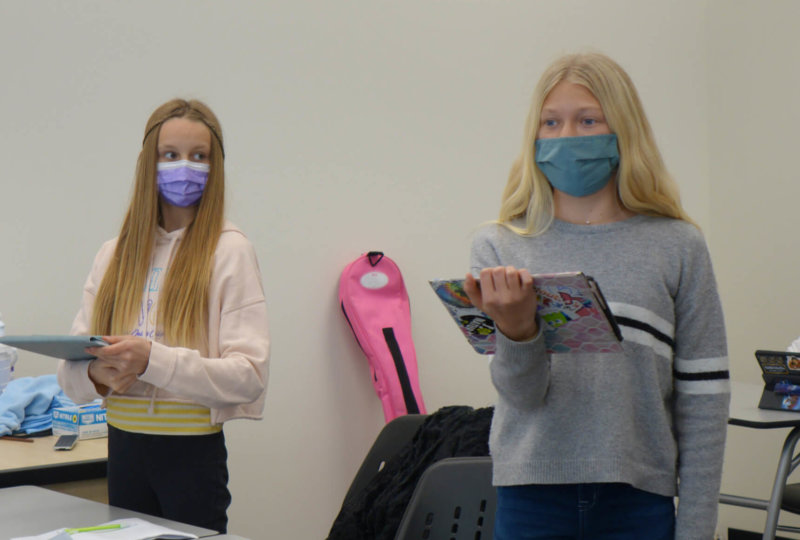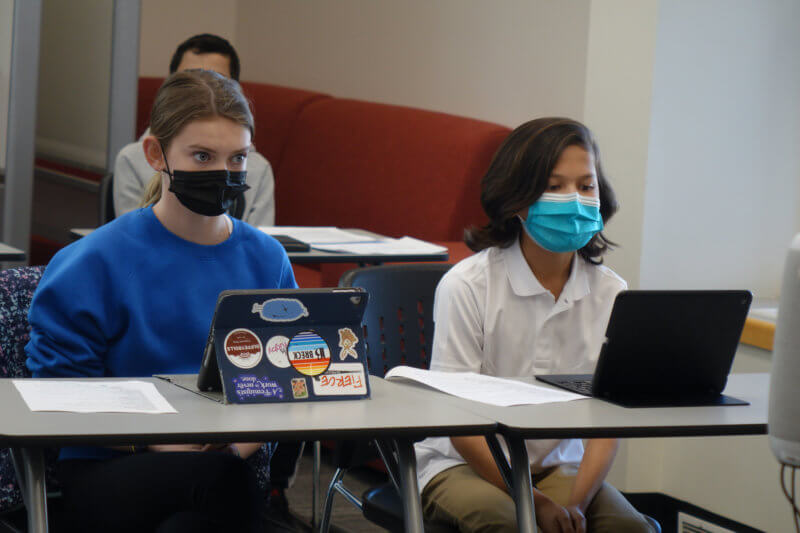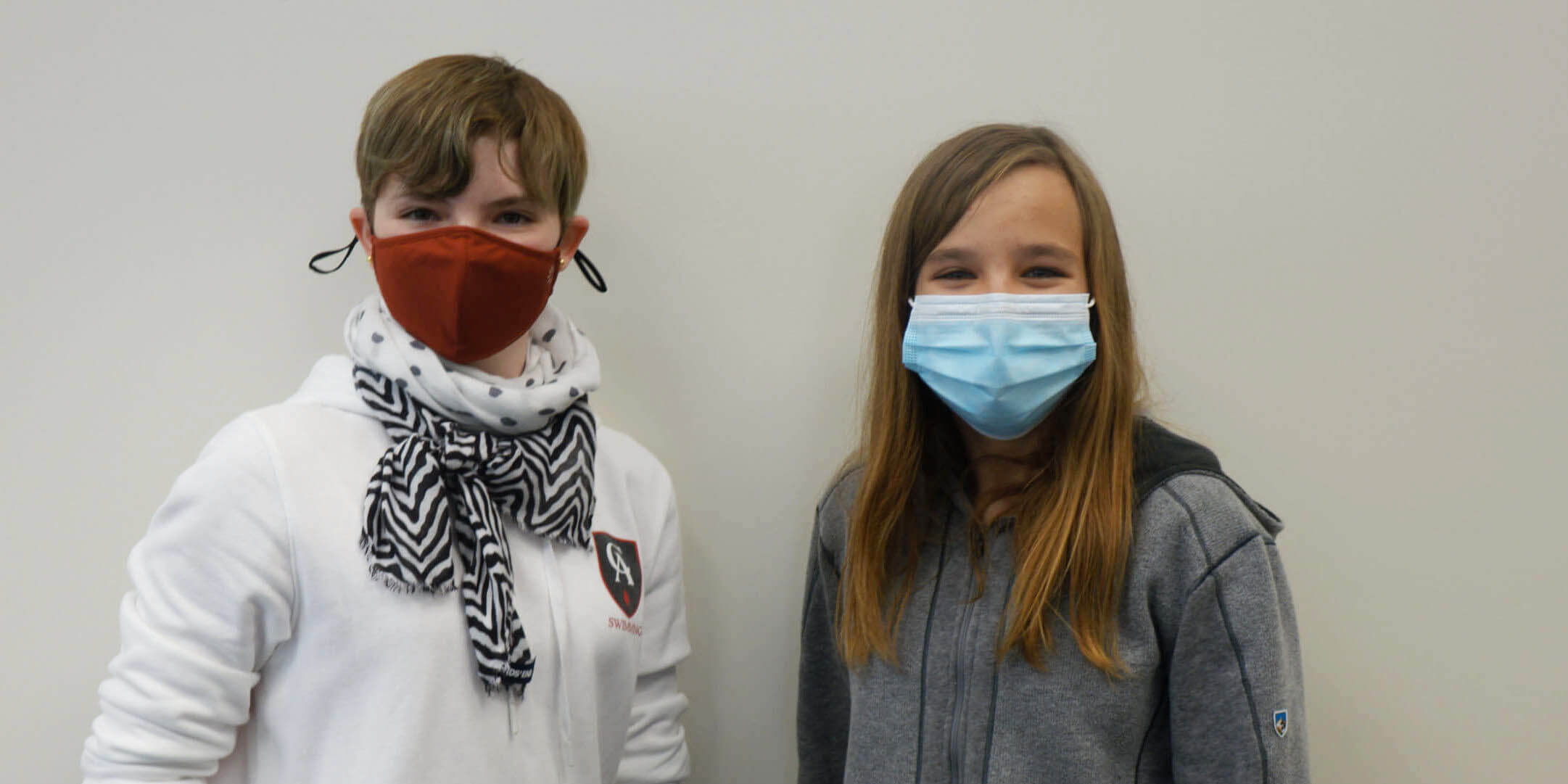For their annual debate unit, Colorado Academy Seventh Graders did not shy away from tackling one of the most highly charged topics of the moment—whether to defund the police.
“Some people thought that this was too heavy a topic for students our age, but I disagree,” says Seventh Grader Isabel Gottlieb. “I think it’s important to understand current events.”
The Grade 7 debate is a rite of passage for CA Middle Schoolers, an experience that is highly discussed and anticipated each year. Students spend several weeks in their Critical Thinking course—working in teams of two—to study the issue, learn both sides, develop arguments and counter arguments, and debate with and in front of their peers.
“Debate builds students’ confidence to speak in public,” says Middle School Core teacher Forbes Cone, who oversees the final debate. “It also gives them confidence that they can make sense of complex and controversial topics like ‘defunding the police.’ My hope is that students will realize that with sufficient research, from a variety of sources, it is possible to make sense of current issues.”
The first rounds of debate happen in class, with scoring based on arguments, cross-examinations, rebuttals, public speaking, and persuasiveness. When teams are narrowed to the final four, the whole grade gathers—this year on Zoom—to watch and cheer on the remaining teams.
This year’s final teams were Claire Prior and Elliott Rydberg; Caroline Hagen and Alexa Lane; Zack Lapidus and Layne Ballenger; and the ultimate winners, Isabel Gottlieb and Kate Freeman.
Whether the team argues the affirmative or negative side is decided by a coin toss, so students need to be fully prepared for both.
Kate says defunding the police was “such an in-depth and intricate topic, that it was easy to find arguments on both sides.”
It’s one thing to have your arguments and talking points ready, but students also have to directly address the points made by the opposing team. “It is a common misconception that debate is mostly about speaking, but it’s equally about listening.” Cone says. “Carefully listening to what the opponent is saying is the first step to formulating an effective cross-examination.”
“Putting as much passion and force behind your words as you can muster, to make your audience feel what you are feeling on the topic, is a good way to be successful,” Kate says. “The only real way to implement that—best described by Mr. Cone—is to fool yourself fully into believing what you’re saying. Then, your audience will too.”
Middle School Principal Bill Wolf-Tinsman appreciates the many important skills required for debate. “Students must be able to research cogent arguments and support them with meaningful evidence. Equally important, during cross- examination, they must be able evaluate arguments and create a counter narrative.”
Isabel agrees that the experience has added to her skill set. “Debating teaches you to research, prepare, work with a partner, publicly speak, and think on your feet,” she says.
Kate adds, “I think that it’s great that CA is teaching us to debate. It’s an amazing skill and life lesson that I know I will carry on with me throughout my life. It also gives people incentive to really look into the issues and problems in today’s world, not to mention how to see all facets of a situation. Overall, this was an incredible experience that I know I will remember forever.”



